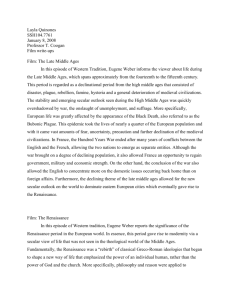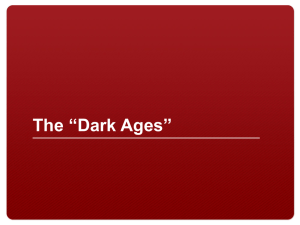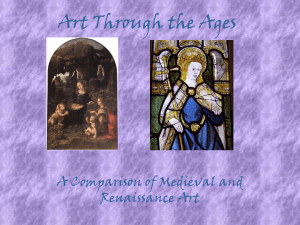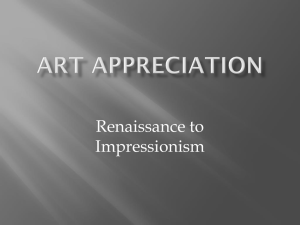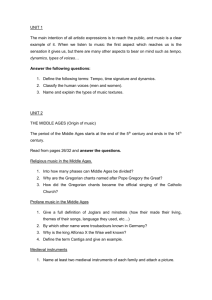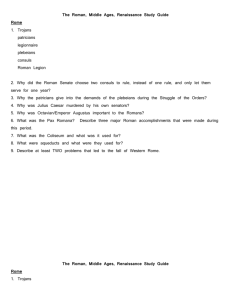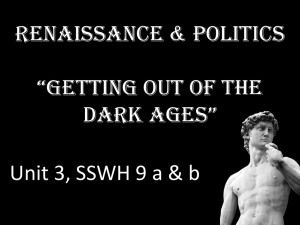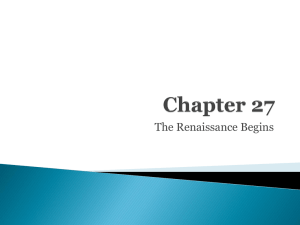FOCUS OF MEN AND SOCIETY Middle Ages Renaissance
advertisement
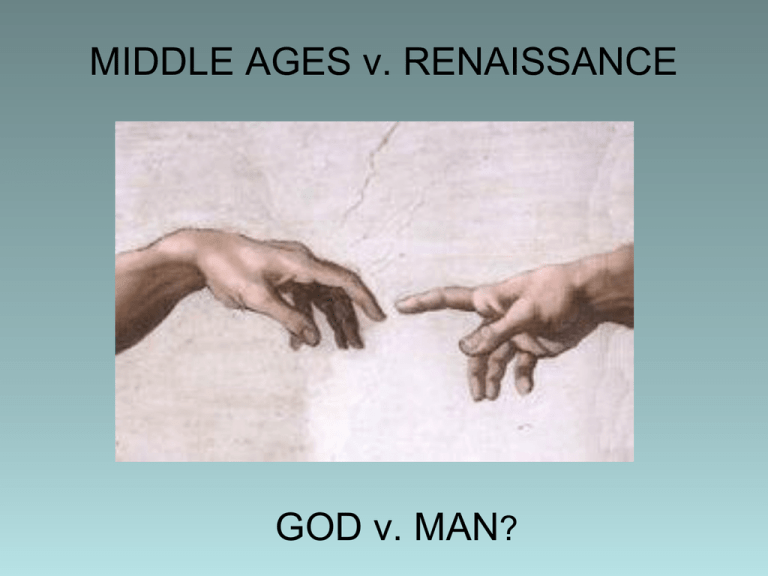
MIDDLE AGES v. RENAISSANCE GOD v. MAN? FOCUS OF MEN AND SOCIETY Middle Ages • God • Eternal life Renaissance • Man • Worth of the individual • This life • Classical Greece and Rome • manners EDUCATION Middle Ages • Scholasticism – Study of given truths authorized by Church – Scientific writings of Aristotle Renaissance • Humanism = study of classics • Greek/classical literature • Classical sculpture • Classical architecture • Liberal arts education SCIENCE AND MEDICINE Middle Ages • Church = authority, expected conformity • Barbers – bloodletting • Superstition, magic Renaissance • Skepticism • Individualism • Science – sterile fields • Leonardo – drawings of human bodies – To invent weaponry – Banned from Rome’s morgue TRAVEL Middle Ages • Pilgrimages • Crusades Renaissance • Age of exploration • Trade • Personal glory and wealth SOCIAL CLASSES Middle Ages • Nobles • Peasants Renaissance • Nobles • Middle class • Peasants PHILOSOPHY Middle Ages • God-centered • Insignificant theological arguments Renaissance • Little original thinking • Restated ancient philosophers ART Middle Ages • • • • • God-centered Symbolic meaning 2 dimensional Taught a lesson Most important item was the biggest – no linear perspective Renaissance • • • • • • 3 dimensional Humanized people Perspective Anatomically correct Naturalism Freestanding sculptures ARCHITECTURE Middle Ages • Gothic and Romanesque • Bigger – better • Reach higher to be close to God • Focused on religious buildings Renaissance • Influence of ancient Rome and Greece • Symmetry • Refinement • Secular and religious buildings DRAMA Middle Ages • Purpose – religious instruction • Morality plays • Performed in churches Renaissance • Secular themes – completely divorced from Church • theatres MUSIC Middle Ages • Gregorian chant • Purpose – honor God • Single-voiced (homophonic) • Few musical instruments Renaissance • • • • • Polyphonic Symmetrical notation Mathematical Regular proportions Secular themes – romantic love • madrigal VIEW OF ANCIENT WORLD Middle Ages • Pagans • Used pagan works to bolster Christian Church dogma • Felt inferior Renaissance • Appreciated classicsstudied them • Admired ancients • Felt inferior

